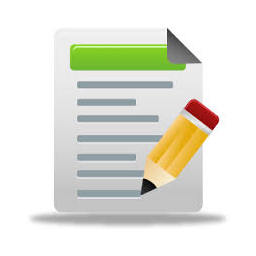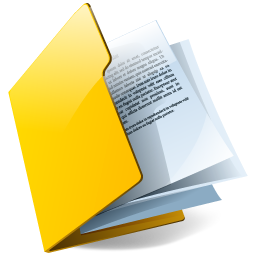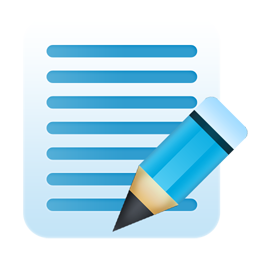English
CBSE class 8 English syllabus, question papers, online tests and important questions as per CBSE syllabus. Notes, test papers and school exam question papers with solutions. Main topics are NCERT textbook Honeydew, he Best Christmas Present in the World, The Tsunami, Glimpses of the Past, Bepin Choudhurys Lapse of Memory, The Summit Within, This is Jodys Fawn, A Visit to Cambridge, A Short Monsoon Diary, The Great Stone Face - I, The Great Stone Face - II, The Ant and the Cricket (Poem), Geography Lesson (Poem), Macavity - The Mystery Cat (Poem), The Last Bargain (Poem), The School Boy (Poem), The Duck and the Kangaroo (Poem), When I Set Out For Lyonnesse (Poem), On the Grasshopper and Cricket (Poem), Ncert textbook It So Happened, HowThe Camel Got His Hump, Children at Work, The Selfish Giant, The Treasure Within, Princess September, The Fight, The Open Window, Jalebis, The Comet - I, The Comet - II

CBSE, JEE, NEET, CUET
Question Bank, Mock Tests, Exam Papers
NCERT Solutions, Sample Papers, Notes, Videos

myCBSEguide App
Complete Guide for CBSE Students
NCERT Solutions, NCERT Exemplars, Revison Notes, Free Videos, CBSE Papers, MCQ Tests & more.
CBSE class 8 English syllabus, question papers, online tests and important questions as per CBSE syllabus. Notes, test papers and school exam question papers with solutions. Main topics are:
NCERT textbook Honeydew
- The Best Christmas Present in the World
- The Tsunami
- Glimpses of the Past
- Bepin Choudhury's Lapse of Memory
- The Summit Within
- This is Jody's Fawn
- A Visit to Cambridge
- A Short Monsoon Diary
- The Great Stone Face - I
- The Great Stone Face - II
- The Ant and the Cricket (Poem)
- Geography Lesson (Poem)
- Macavity - The Mystery Cat (Poem)
- The Last Bargain (Poem)
- The School Boy (Poem)
- The Duck and the Kangaroo (Poem)
- When I Set Out For Lyonnesse (Poem)
- On the Grasshopper and Cricket (Poem)
Ncert textbook It So Happened
- How The Camel Got His Hump
- Children at Work
- The Selfish Giant
- The Treasure Within
- Princess September
- The Fight
- The Open Window
- Jalebis
- The Comet - I
- The Comet - II
Objectives
The general objectives at this stage are:
- to negotiate their own learning goals and evaluate their own progress, edit, revise, review their own work
- to understand, enjoy and appreciate a wide range of texts representing different cultures, ways of living
- to be able to articulate individual/personal responses effectively
- to use language and vocabulary appropriately in different contexts and social encounters
- to be able to organise and structure thoughts in writing/speech
- to develop production skills ( fluency and accuracy in speaking and writing)
- to use dictionary suitable to their needs
- to understand and enjoy jokes, skits, children’s films, anecdotes and riddles
At the end of this stage learners will be able to do the following:
- understand the central idea and locate details in the text (prescribed and non-prescribed)
- use his/her critical/thinking faculty to read between the lines and go beyond the text
- narrate simple experiences, describe objects and people, report events to peers
- speak accurately with appropriate pauses and clear word/sentence stress to be intelligible in familiar social contexts
- write simple messages, invitations, short paragraphs, letters (formal and informal) applications, simple narrative and descriptive pieces, etc.
- use his/ her proficiency in English to explore and study other areas of knowledge through print and non-print media
- to undertake small projects on a regular basis
Language Items
At the upper primary level, knowledge of grammar remains a process of discovery combined with a conscious effort to explicitly understand and name grammatical items. However, these should not be taken out of contexts to be treated as discrete teaching items.
In addition to consolidating the items learnt earlier, the following will be introduced and recycled through the upper primary stage.
- determiners
- passivisation
- linking words
- adjectives (comparative and superlative forms)
- adverbs (place and types)
- modal auxiliaries
- tense forms
- word order in sentence types
- clauses
- reported speech
Methods and Techniques
Classroom interaction would be such as to promote optimal learner participation leading to an urge to use language both in speech and writing. The selection of actual classroom procedures is left to the discretion of the teacher.
However, the following are recommended:
- Role play
- Dramatisation
- Reading aloud
- Recitation of rhymes, poems and making observations on a given topic/theme
- Telling and retelling stories, anecdotes, and jokes
- Discussion, debate
- Simple projects
- Interpreting pictures, sketches, cartoons
- Activities, tasks, and language games
- Pair work, group work, and short assignments both individual and group
- Exploring the electronic media

myCBSEguide
Trusted by 1 Crore+ Students

Test Generator
Create papers online. It's FREE.

CUET Mock Tests
75,000+ questions to practice only on myCBSEguide app
 myCBSEguide
myCBSEguide



